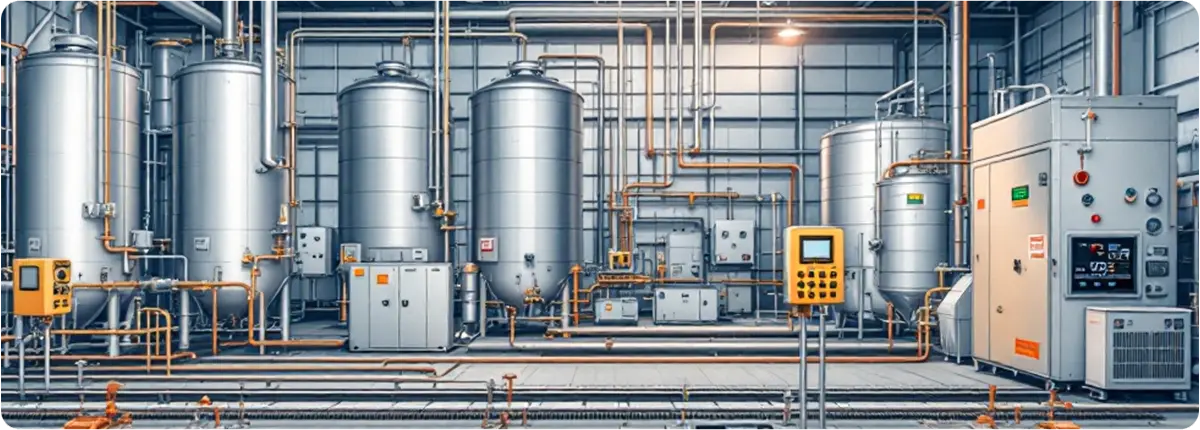Temperature Measurement Systems and Sensors
Temperature measurement is one of the most critical parameters in industrial processes. In industries such as chemical, energy, food, and pharmaceuticals, accurate temperature monitoring is essential for process safety, product quality, and energy efficiency.

PRINCIPLES OF TEMPERATURE MEASUREMENT
Temperature reflects the thermal energy of a system. There are two main categories of measurement:
- Contact Measurement: Thermocouples, Resistance Temperature Detectors (RTDs), thermistors.
- Non-Contact Measurement: Infrared (IR) sensors, pyrometers.
FUNDAMENTAL EQUATIONS AND RELATIONSHIPS
The Stefan-Boltzmann law explains the relationship between temperature and radiation:
E = σ · T⁴
Where E is emitted energy (W/m²), σ is the Stefan-Boltzmann constant (5.67 × 10⁻⁸ W/m²K⁴), and T is absolute temperature (K).
For RTDs, the resistance-temperature relationship is given by:
R(T) = R₀ (1 + αΔT)
Where R(T) is resistance at temperature T, R₀ is reference resistance, and α is the temperature coefficient.
TYPES OF TEMPERATURE SENSORS
- Thermocouples: Widely used, cost-effective, suitable for broad temperature ranges.
- RTDs: Provide high accuracy and long-term stability.
- Thermistors: High sensitivity in narrow temperature ranges.
- Infrared Sensors: Enable non-contact measurement, ideal for moving or high-temperature objects.
- Pyrometers: Suitable for extremely high-temperature applications (e.g., metallurgy, glass industry).
FACTORS AFFECTING MEASUREMENT ACCURACY
- Sensor placement and installation
- Emissivity of the measured surface
- Environmental conditions (dust, vapor, humidity)
- Frequency and precision of calibration
STANDARDS AND CALIBRATION
- IEC 60751: Standards for RTD sensors.
- IEC 60584: Standards for thermocouples.
- ISO 17025: Accreditation for calibration laboratories.
APPLICATION AREAS
- Reactor temperature control in chemical industries
- Turbine and boiler temperature monitoring in power plants
- Cooking and cooling processes in the food industry
- Sterilization processes in the pharmaceutical industry
CONCLUSION
Temperature measurement systems are indispensable for ensuring safety and quality in industrial processes. With proper sensor selection, calibration, and maintenance, temperature measurements can be carried out reliably and sustainably.
 Convalve
Convalve Convalve
Convalve